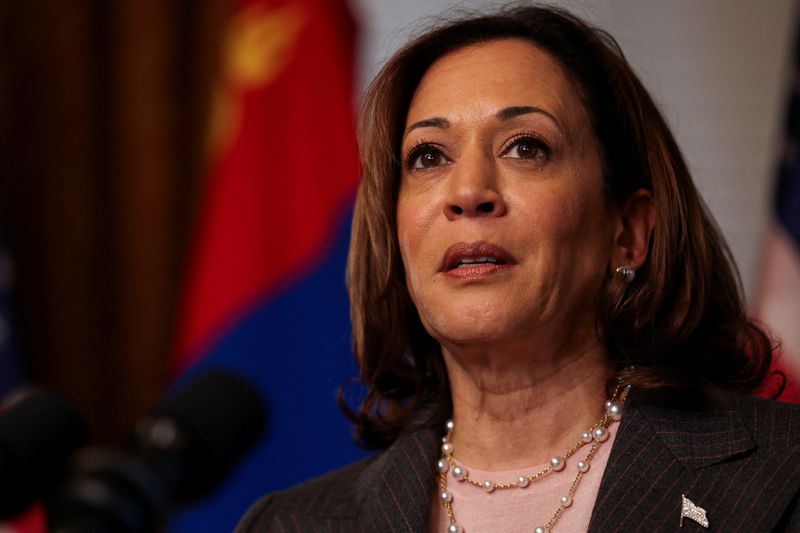Harris, Yellen tout unions’ economic benefits with new Treasury report
2023.08.28 17:21

© Reuters. FILE PHOTO: U.S. Vice President Kamala Harris speaks with Mongolia’s Prime Minister Oyun-Erdene Luvsannamsrai at her ceremonial office, in the Eisenhower Executive Office Building, on the White House campus in Washington, U.S., August 2, 2023. REUTERS/K
WASHINGTON (Reuters) – U.S. Vice President Kamala Harris and Treasury Secretary Janet Yellen held a rare joint press call on Monday to tout the benefits of union membership, releasing a new Treasury report that shows wages for union members are 15% higher than non-union workers.
THE TAKE: The White House has been pushing to support unions and expanded union membership as part of U.S. President Joe Biden’s plan to overhaul the U.S. economy, fight inequality and reallocate more corporate profits to the middle class.
There are political reasons too. Union voters helped Biden win critical election battleground states in 2020 and labor unions and worker groups are expected to play an important role in the Democratic Party’s grassroots operations in the 2024 election.
BY THE NUMBERS: The report shows unions boost wages by 10 to 15 percent in industries where new unions form, add to fringe benefits, retirement plans, predictable scheduling and workplace grievance policies.
It did not quantify a direct impact on overall economic output from union workforces, but said that by helping to raise wage levels, and improve working conditions, unions were contributing substantially to middle-class financial stability, which contributes “to a more robust and resilient economy.”
KEY QUOTE: “Union workers earn 15 percent more in pay than non-union workers in the same occupation. Union workers also receive retirement benefits, paid sick leave, life insurance and discounts on childcare at a much higher rate,” Harris said.
CONTEXT: A competitive market for workers, increased job site risks during the pandemic, high housing and food costs, tech disruptions, expiration of cyclical contracts and union-friendly policies from the Biden administration are fueling renewed interest in workers’ rights in the United States.
Union membership in the private sector remains at historical lows in the U.S.







